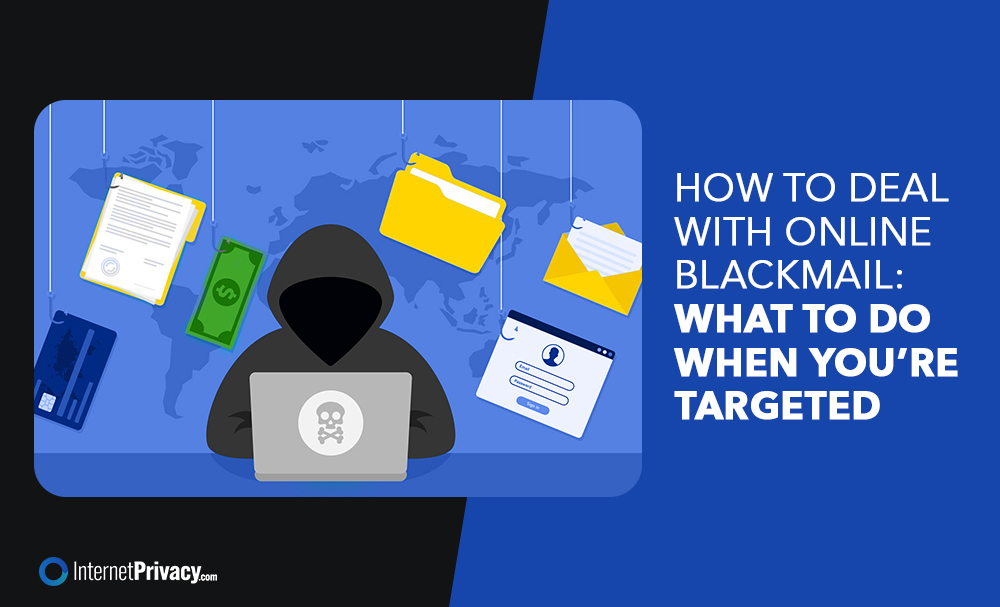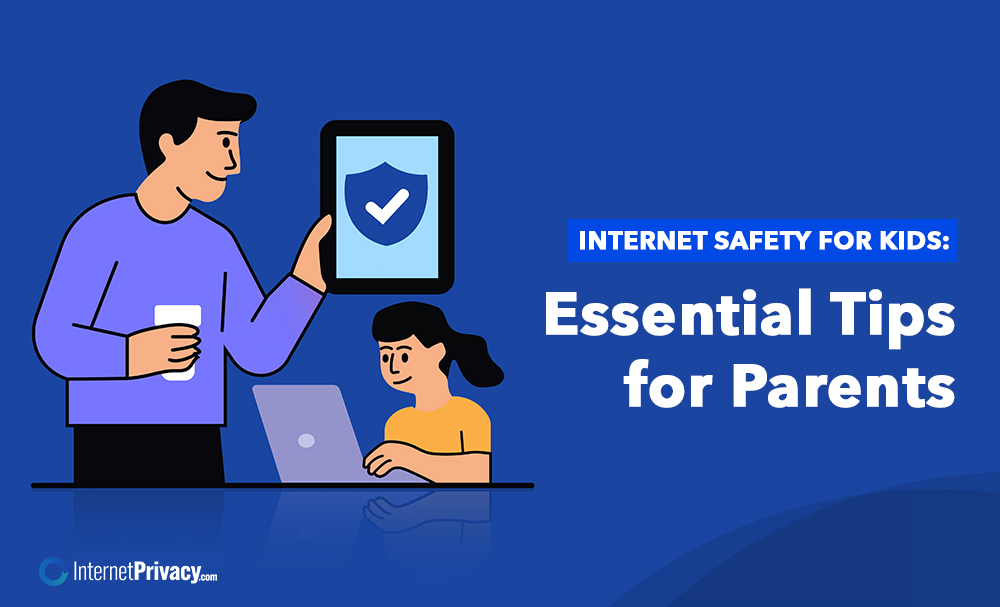How to Deal with Online Blackmail: What to Do When You’re Targeted

Online blackmail is a growing concern that affects people across all walks of life. Understanding this threat and how to handle it is crucial if you ever become a target.
What is Online Blackmail?
Online blackmail, or cyber extortion, is a crime where individuals are threatened with the release of personal or compromising information unless they meet demands for money or other favors. This includes sextortion, where explicit content is used to manipulate victims and other forms of blackmail that exploit personal data for financial gain.
As digital platforms grow, so do these crimes, causing significant emotional distress for victims. Often, individuals need legal help and cybersecurity support to navigate these serious threats.
Why Do People Engage in Online Blackmail?
People engage in online blackmail for various reasons, typically for financial gain, power, or revenge. Criminal groups often carry out these acts using cyber extortion tactics.
The internet’s anonymity, combined with easy access to personal data, encourages these groups to target vulnerable individuals. Some perpetrators may also be motivated by the thrill of causing harm or asserting control over others. This disturbing trend requires urgent attention from law enforcement and cybersecurity experts.
The Impact of Online Blackmail
Online blackmail can devastate both your personal and professional life. The emotional toll is often profound, leading to anxiety, depression, and even suicidal thoughts. The fear of exposure can cause isolation and helplessness. In addition to emotional distress, reputational damage can be equally devastating. A damaged online reputation can lead to lost business, strained professional relationships, and significant financial loss. Acting quickly is crucial to mitigate these impacts. Seek support from trusted friends, family, and professionals, and contact law enforcement and cybersecurity experts for help.
What Are the Signs of Online Blackmail?
Recognizing the signs of online blackmail is essential for protecting yourself. Common signs include receiving unsolicited messages demanding money in exchange for not releasing sensitive information or images, often due to a privacy breach.
Victims may also experience emotional distress as they are pressured into compliance. Understanding these warning signs allows individuals to prevent online abuse and protect themselves proactively.
How to Identify Blackmail Threats
Identifying blackmail threats requires vigilance and awareness of your online presence. Key indicators include receiving unsolicited messages threatening to release personal or compromising information unless certain demands are met.
Victims may notice changes in their privacy settings or realize they’ve been targeted based on their online activities, such as on Facebook, TikTok, or OnlyFans. By regularly monitoring communications, adjusting privacy settings, and recognizing unusual behavior, individuals can take steps to report blackmail and protect themselves.
Documenting threats is essential for building a case and reporting incidents to the appropriate authorities, ensuring personal safety.
Common Types of Online Blackmail on Social Media Platforms
Online blackmail can take many forms, including webcam blackmail, sextortion, and traditional cyber extortion. Webcam blackmail involves capturing compromising footage and threatening to release it unless demands are met.
Sextortion, where explicit images are used as leverage, is also becoming more common. Phishing scams, while not always direct blackmail, can lead to fraud and set the stage for future threats. These tactics exploit individuals’ vulnerabilities, using social engineering to gain trust before manipulating victims.
The psychological toll can be significant, often causing feelings of shame and helplessness. Confidential support is vital for victims. To protect against these threats, individuals should implement strong cybersecurity measures like password updates, two-factor authentication, and expert consultations.
What to Do When You’re Targeted?
Being targeted by online blackmail is deeply distressing, but responding effectively is key to limiting harm and pursuing justice. The first step is to stay calm, as emotional distress can cloud judgment and escalate the situation.
Next, gather as much evidence as possible, including screenshots and saved communications. This will be crucial when reporting the incident to local authorities, the Internet Crime Complaint Center, or consulting a blackmail attorney. The FBI’s Internet Crime Report highlights the growing prevalence of online blackmail, stressing the importance of being prepared. A cease-and-desist letter may also stop further harassment. Consulting with cybersecurity experts or legal firms, such as RM Warner Law, can help you strengthen your security.
Stay Calm and Do Not Panic
When facing online blackmail, staying calm is crucial to avoid hasty decisions that may worsen the situation. Emotional distress can cloud judgment and increase vulnerability. Taking a moment to breathe and assess the situation helps individuals respond strategically.
Mindfulness techniques like deep breathing, meditation, or walking outdoors can help regain clarity. Seeking support from trusted friends or family provides reassurance and helps maintain a rational mindset. Documenting all interactions creates an evidence trail and shifts focus from emotional reactions to practical actions. Staying clear-headed is essential for personal well-being and effectively managing the blackmail threat.
Do Not Respond to the Blackmailer
Avoid responding to the blackmailer, as engaging may escalate the situation and lead to further demands or emotional distress. Responding could signal compliance, encouraging the blackmailer to increase threats or requests.
By refraining from interaction, victims better protect themselves from further harm, such as defamation or additional cybercrime. Engaging complicates legal matters, especially when pursuing criminal charges. Instead, focus on documenting all threats with screenshots or recordings, notifying authorities, and seeking emotional support. Prioritizing safety and distance allows for effective management of the situation.
Gather Evidence
Gathering evidence is critical in addressing online blackmail. It helps build a strong case when reporting to authorities, legal professionals, or an extortion lawyer. Collect various types of evidence to create a complete profile of the incident, often with the help of an extortion lawyer.
This includes screenshots of threatening messages, relevant social media interactions, digital footprints like IP addresses, email headers, and records of all communications. This evidence highlights the severity of the situation and helps law enforcement take appropriate action under the Communications Decency Act.
Contact Local Law Enforcement
Contacting law enforcement is an essential step in addressing online blackmail. Local police, the National Crime Agency, and the Internet Crime Complaint Center are equipped to handle cybercrime cases. Reporting incidents increases visibility and supports law enforcement efforts. The FBI’s Internet Crime Report shows an increase in Internet crimes each year, emphasizing the importance of reporting incidents.
Victims may also seek advice from organizations like The Cyber Helpline or legal firms like RM Warner Law. Provide all gathered evidence, including screenshots, emails, and details, to ensure the case is taken seriously. Engaging with local authorities helps initiate investigations and connects victims with resources to guide future protective measures.
Seek Support from Trusted Friends and Family
Confiding in trusted individuals is crucial when dealing with online blackmail. It offers emotional relief and helps combat feelings of isolation. Sharing your experience with loved ones turns vulnerability into a shared experience, boosting emotional well-being and helping you regain control.
When discussing these issues, choose a calm moment, be honest about the emotional impact, and encourage questions for understanding. Emphasize the need for support over immediate solutions. Connecting with others who’ve faced similar challenges can reinforce the understanding that no one is alone.
Experienced Lawyers
Having an experienced lawyer by your side can make a significant difference when dealing with online blackmail. Lawyers specializing in cybercrime can guide you through legal options, such as filing a police report, pursuing a civil lawsuit, or obtaining a restraining order. They can also assist in negotiating with the blackmailer if needed and work closely with law enforcement to ensure justice is served.
Support Services and Helplines
Support services and helplines offer a safe and confidential space to discuss your situation and receive expert advice. Notable resources include the National Cyber Crime Reporting Hotline (1-800-372-6677), the National Center for Victims of Crime (1-855-484-2846), and the Cyber Civil Rights Initiative (1-844-878-2274). These organizations provide invaluable support, helping you take the necessary steps to protect yourself and your online reputation.
How to Protect Yourself from Online Blackmail?
To protect yourself from online blackmail, take proactive cybersecurity measures. Adjust your social media privacy settings, use strong passwords, and enable two-factor authentication to reduce vulnerability.
Be cautious about online activities. Avoid oversharing personal information and engaging with suspicious content. Review privacy settings on platforms like Facebook, TikTok, and OnlyFans, and stay alert for phishing attempts.
Additionally, maintain strong, unique passwords and use a password manager for added security. Regularly update your software to protect against emerging threats. Auditing social media profiles and being mindful of public information can further minimize risks.
Securing Online Accounts
Secure your online accounts to prevent online blackmail. Enable two-factor authentication (2FA) on all accounts. Use strong, unique passwords and consider a password manager. Regularly update software and devices for the latest security patches. Avoid clicking on links or downloading attachments from unknown sources, as they may be phishing attempts.
Monitor your online accounts for suspicious activity and take proactive steps to reduce the risk of being blackmailed.
Managing Personal Data
Effective data management is crucial in protecting yourself from online blackmail. Be cautious about sharing personal details online and adjust privacy settings to limit access. Consider removing your data from broker sites that collect and sell your information. Use a VPN when accessing public Wi-Fi networks to protect against hackers. Always be mindful of the information you share, avoiding sensitive or intimate content.
Following these precautions can safeguard your personal life and reduce the risk of exploiting your data.
Conclusion
Online blackmail is a serious threat. It is crucial to protect yourself by recognizing the signs, knowing how to respond, and seeking legal and cybersecurity help.
Prioritize cybersecurity and take proactive steps to protect your online presence. Awareness is key—victims often experience prolonged distress because they’re unaware of available resources. By understanding the signs and seeking help, you can avoid falling victim and contribute to creating a safer digital community for all.





